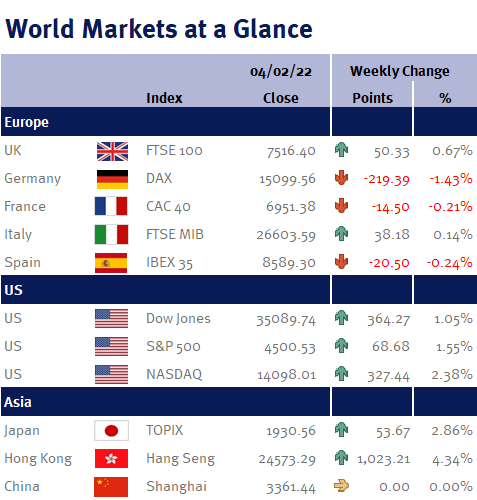Whilst last week was all about the US Fed and its hawkish comments on interest rates, this week was all about the BoE and ECB.
And it was obvious that Fed policymakers aren’t the only ones who have changed their tune over inflation: in the UK, the BoE increased interest rates by 0.25% to 0.5%, while the European Central Bank said risks to the inflation outlook are on the upside, prompting financial markets to immediately start pricing-in higher Eurozone interest rates this year.
However, what we found bizarre was the shift in the BoE’s views: having been reluctant to increase UK interest rates as recently as last November, the BoE has since not only increased interest rates at the last two consecutive meetings, but this week came very close to increasing interest rates by 0.5% as four of the nine BoE policymakers actually voted for a larger increase!
And this mind-blowing about-turn suggests that not only will the BoE increase UK interest rates again at their next meeting on 17 March 2022, but it may also encourage Fed policymakers to kick-off their tightening cycle with a 0.5% increase when they meet on 16 March 2022.


